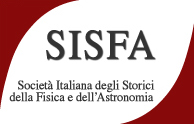Speaker
Description
Following Ian Hacking’s (1989) investigation in the history of gravitational lensing, many studies have considered the role of models in astrophysics, particularly the so-called “models of data”, i.e., the use of numerical methods to infer an expected output from statistics about an input dataset. This has led to emphasize that much research appears “model driven”: models shape the researchers’ expectations, support their guesses about which objects they will observe next and suggest what kind of experiments is needed to check the guesses and to expand the theory.
In this paper, I argue that the emergent field of multi-messenger astrophysics — i.e., the combined study of radiation from the cosmos conveyed by mediators different in nature: neutrinos, photons in all frequencies, gravitational waves, and cosmic rays — allows to appreciate a special feature of models that has largely been overlooked. Here not only models shape theoretical expectations and guide the experimental effort. They also suggest that experiments will generally need a plurality of cooperating researching actors, thus narrowing the scientists’ choice about what kind of social behavior they should adopt to pursue their research. With that, models in multi-messenger astrophysics exemplify an intriguing case in which the scientists’ attitude toward cooperation is not mainly due to social or economic constraints but motivated, not to say determined, by epistemic requirements.

